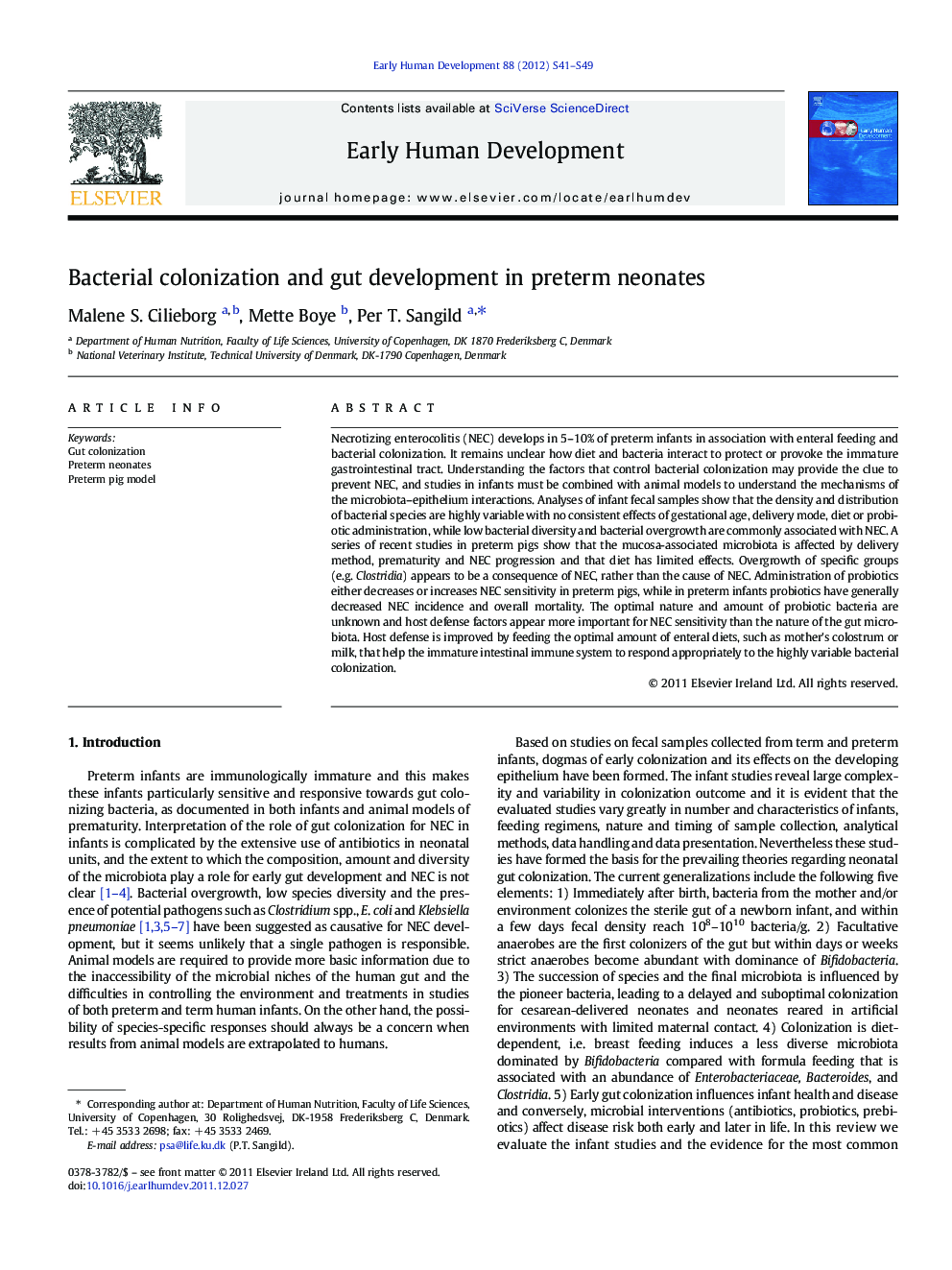| Article ID | Journal | Published Year | Pages | File Type |
|---|---|---|---|---|
| 3917355 | Early Human Development | 2012 | 9 Pages |
Necrotizing enterocolitis (NEC) develops in 5–10% of preterm infants in association with enteral feeding and bacterial colonization. It remains unclear how diet and bacteria interact to protect or provoke the immature gastrointestinal tract. Understanding the factors that control bacterial colonization may provide the clue to prevent NEC, and studies in infants must be combined with animal models to understand the mechanisms of the microbiota–epithelium interactions. Analyses of infant fecal samples show that the density and distribution of bacterial species are highly variable with no consistent effects of gestational age, delivery mode, diet or probiotic administration, while low bacterial diversity and bacterial overgrowth are commonly associated with NEC. A series of recent studies in preterm pigs show that the mucosa-associated microbiota is affected by delivery method, prematurity and NEC progression and that diet has limited effects. Overgrowth of specific groups (e.g. Clostridia) appears to be a consequence of NEC, rather than the cause of NEC. Administration of probiotics either decreases or increases NEC sensitivity in preterm pigs, while in preterm infants probiotics have generally decreased NEC incidence and overall mortality. The optimal nature and amount of probiotic bacteria are unknown and host defense factors appear more important for NEC sensitivity than the nature of the gut microbiota. Host defense is improved by feeding the optimal amount of enteral diets, such as mother's colostrum or milk, that help the immature intestinal immune system to respond appropriately to the highly variable bacterial colonization.
